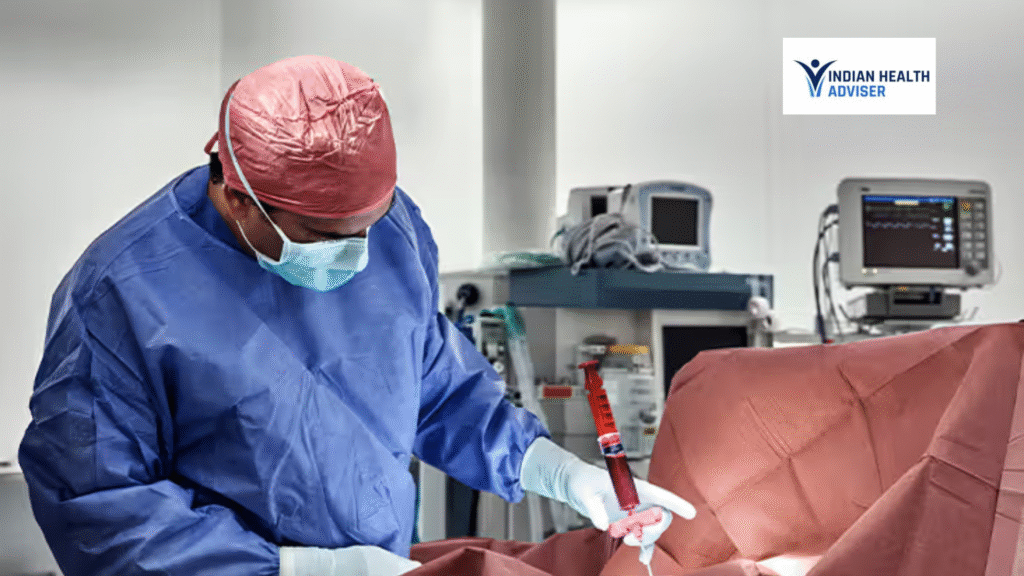Undergoing a bone marrow transplant is a life-changing event—both physically and emotionally. While the transplant itself marks a significant step toward healing, it is the period afterward that truly tests a patient’s resilience and adaptability. Understanding life after bone marrow transplant can help patients and their families navigate the road ahead with more confidence and clarity. As patients emerge from treatment, the focus shifts from survival to recovery, from hospital rooms to daily routines, and from uncertainty to hope. This transition, however, involves gradual healing, lifestyle adjustments, and ongoing medical care.
With the support of experienced healthcare professionals like those at Indian Health Adviser, patients receive essential guidance for this complex phase. Whether it’s managing physical side effects or handling emotional health, post-transplant life requires a multi-dimensional approach that goes beyond medical monitoring.
The Initial Recovery Phase
The first few months after a bone marrow transplant are considered the most critical. During this time, patients are closely monitored for any signs of complications such as graft-versus-host disease (GVHD), infections, or delayed engraftment. Immunity is typically compromised, which makes patients highly susceptible to infections. This means adhering to strict hygiene protocols, avoiding crowded places, and eating well-cooked, safe food becomes non-negotiable.
Patients may also experience fatigue, muscle weakness, loss of appetite, and changes in taste or smell. These symptoms are common and generally improve over time, but they can affect daily life significantly. Recovery does not follow a strict timeline—it varies widely depending on the type of transplant (autologous or allogeneic), patient age, pre-transplant health status, and how the body responds to the new marrow.
Emotional and Mental Health Challenges
The emotional impact of a transplant is often underestimated. Feelings of anxiety, depression, fear of relapse, and even survivor’s guilt are common in the months that follow. Patients may also experience a sense of isolation, especially if they must stay away from social contact due to infection risks.
Support from psychologists, counselors, or support groups can be incredibly valuable. Many hospitals and organizations, including Indian Health Adviser, offer mental health services tailored specifically for transplant survivors. Mindfulness practices, journaling, light physical activities like walking or yoga, and connecting with other survivors can foster emotional healing and resilience.
Nutrition and Lifestyle Adjustments
Post-transplant recovery heavily relies on nutrition. A healthy, balanced diet aids in rebuilding strength, boosting immunity, and managing side effects. During the first few months, patients are often advised to follow a low-microbial or neutropenic diet. This typically includes:
- Avoiding raw or undercooked meats and vegetables
- Drinking only pasteurized liquids
- Steering clear of street food and buffets
- Maintaining rigorous food hygiene
Hydration is equally important to help the kidneys flush out residual chemotherapy drugs and support organ function.
Physical activity, though limited initially, should gradually be reintroduced. Walking, gentle stretching, or breathing exercises help combat fatigue and improve overall well-being. Doctors usually recommend working with a physiotherapist to develop a safe and progressive exercise plan.
Long-Term Follow-Up and Medical Care
Patients will continue to see their transplant doctors for regular follow-up visits, blood tests, and evaluations. These check-ups are crucial for early detection of late-onset complications like:
- Chronic GVHD
- Organ damage (lungs, liver, kidneys)
- Hormonal imbalances
- Risk of secondary cancers
Immunizations are also revisited. Since the immune system has been effectively “reset,” patients often need to receive childhood vaccines all over again. The re-vaccination schedule usually begins about 6 to 12 months post-transplant.
Adherence to medication is critical during this phase. Immunosuppressants, antifungal and antiviral drugs, and other supportive treatments must be taken exactly as prescribed to avoid complications.
Returning to Work and Normal Life
Reintegrating into daily life can be both exciting and intimidating. While some patients may feel ready to return to work or school within 6 months, others may need longer. It’s important to listen to your body, consult your care team, and gradually ease into normal routines.
Communicating openly with employers or educators about health limitations ensures more understanding and flexibility during this transition. Social reintegration, however, must be approached with caution, especially in environments where the risk of infection is higher.
Fertility and Family Planning
Fertility is another important concern for many patients. Chemotherapy and radiation often impact reproductive health. Patients should consult reproductive endocrinologists or fertility specialists if they wish to explore options like sperm banking, egg freezing, or fertility restoration post-transplant.
This is also a good time to revisit long-term personal goals—whether related to education, travel, hobbies, or family. Reclaiming control of one’s life is a powerful motivator for recovery.
Support Systems Matter
Family and friends play a pivotal role during recovery. Their patience, empathy, and practical support help ease the transition. It’s equally important for caregivers to practice self-care and seek support when needed. Professional caregiving services, patient advocates, and online communities can also fill in when loved ones need a break.
Organizations like Indian Health Adviser often provide comprehensive resources, from medical consultations to rehabilitation planning, tailored to the unique needs of transplant survivors. Having such a trusted guide through recovery can make a significant difference in both outcomes and quality of life.
Empowerment Through Knowledge
While recovery is deeply personal, being informed and proactive can greatly influence the journey. Reading success stories, participating in awareness programs, and staying updated on medical advances can offer encouragement and direction.
Understanding life after bone marrow transplant not only prepares patients for what lies ahead but also gives them the tools to face it with courage, clarity, and hope.







